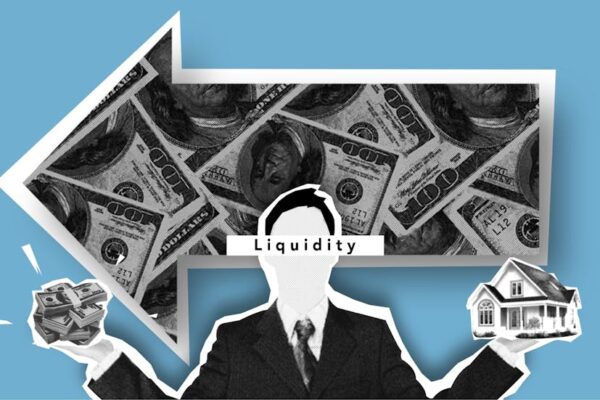Home Mortgage: No Closing Costs
No closing cost mortgages first appeared when mortgage interest rates began declining from double-digit levels in the late 1980s. Since then, they have become one of the most popular options for home buyers, as well as for existing homeowners looking to refinance. Even so, many people still don’t understand how no-closing-cost mortgages work or the benefits of this manner of financing. A no-closing-cost mortgage is different from a low-closing-cost mortgage or the “no costs out of pocket” offered by many lenders. I am going to break down why one might choose to save on mortgage closing costs with GoNoCost Mortgage.
No Closing Cost Mortgage Background Information
Understanding No Closing Cost mortgages begins with one fundamental fact: an interest rate is a meaningless number without knowing the closing costs associated with that rate. The reason for this is simple. There is a whole scale of interest rates available at any given point in time, each with its own cost (in the form of discount points) or credit (which can be applied toward closing costs). Think of interest rates and closing costs as opposite ends of a seesaw. As rates go down, costs go up. As rates go up, costs come down. Let’s break down how to save on those upfront costs and potential interest rates.


How Does a No Closing Cost Mortgage Work
This opposing movement between rates and costs is how No Closing Cost mortgages work. The seesaw we discussed, as interest rates go up, mortgage closing costs go down, and vice versa. With a No Closing Cost mortgage, you accept a slightly higher rate – generally ¼ to ½ percent – in exchange for the corresponding credit, which your mortgage company will use to pay your closing costs. That lender credit, despite the slightly higher monthly payment, can save you thousands of dollars. That credit typically amounts to around $3000 – $5000 and pays both the lender’s origination fee and the typical third-party charges such as:
- Appraisal fee
- Closing attorney
- Title insurance
- Credit report
- Flood certification
- Recording fee
Natural questions that you’re probably asking are “Why would I agree to pay a higher interest rate?” and “Won’t that higher rate cost me more over the long run?” Let’s tackle each of these.
How Does a No Closing Cost Mortgage Affect My Interest Rate?
Why would you agree to pay a higher rate? That answer is simple – you get the lender credit in exchange, and that lender credit saves you a ton of up-front money. Taking a no closing cost mortgage means you receive a lender credit, which the lender uses to cover your closing costs, allowing you to avoid paying closing costs upfront. If you’re buying a home, saving $3000 – $5000 in cash at closing is meaningful, particularly if cash is tight and for first time homebuyers. Even if you have ample cash to pay the fees, there’s probably a better use for that money such as paying off credit card debt or retaining it for the inevitable purchases you’ll need to make for your new home. Saving money upfront is a huge benefit of no closing cost loans. If you’re refinancing, those closing costs usually get added to your loan amount, meaning you have a higher mortgage amount than you would have otherwise, and you’re paying interest on those closing costs for as long as your mortgage is outstanding.
Will a No Closing Cost Mortgage Cost More Over Time?
The more important question is whether having the higher rate will cost more in the long run. It’s commonly believed that a higher interest rate, and the resulting higher payment, will cost more over time, and that’s true if you don’t factor closing costs into the equation. However, because the closing costs can be so significant, it takes years to recover them with the slightly smaller monthly payments you’ll have from the lower interest rate. In most cases, that break-even point – where the accumulated monthly payments savings have fully offset the closing costs – comes after the homeowner has paid off the mortgage. It typically takes 5-8 years to reach that breakeven point and most homeowners will move, refinance, or pay off their mortgages sooner than that. These upfront closing costs can make a major difference when looking at all the costs in your mortgage. When you factor in additional gains you could receive if you used those closing costs for some other beneficial purpose such as investing or paying off other debt, there may never be a break-even point even if you stay in your mortgage for a full 30-year term.
Is a No Closing Cost Mortgage Right for Me?
How do you know if a No Closing Cost mortgage is the right option for you? The best way is to talk with an experienced loan officer who can help crunch the numbers for your specific situation. It is easy to confuse similar terms like no closing cost loan, zero closing cost loans, and no costs out of pocket (which is simply where the lender will roll closing costs into your new loan balance). These all have similar meanings, but actual costs may differ. An experienced loan officer will walk you through all of the pieces that can add or subtract costs into your mortgage. With rates at their highest levels in years, now is exactly the time when a No Closing Cost mortgage is a great option. Why pay closing costs on a mortgage that you may very well end up refinancing in a year or two when/if rates come back down? You’ll never recover those up-front costs in that short a time.
At GoNoCost Mortgage, we believe the No Closing Cost mortgage is the first option home buyers and owners should consider when financing their homes. For more on No Closing Cost mortgages, visit our FAQ page for important information about this program. Or give us a call and one of our mortgage professionals will be thrilled to answer any questions you have.
Comments (9)
Comments are closed.












Mortgage Financing in an Elevated Rate Market - US Newswire
August 23, 2022[…] No closing cost mortgages are traditional mortgages, including conventional, FHA, VA, USDA, and jumbo loans. The defining characteristic is that the mortgage company pays the typically required closing costs in exchange for a slight increase in the interest rate. The closing costs are not financed into the loan, the mortgage company pays them on the customer’s behalf. For more detail on no closing cost mortgages, click here: https://www.gonocost.com/resources/home-mortgage-no-closing-costs/. […]
Mortgage Financing in an Elevated Rate Market – The Global Tribune
August 23, 2022[…] No closing cost mortgages are traditional mortgages, including conventional, FHA, VA, USDA, and jumbo loans. The defining characteristic is that the mortgage company pays the typically required closing costs in exchange for a slight increase in the interest rate. The closing costs are not financed into the loan, the mortgage company pays them on the customer’s behalf. For more detail on no closing cost mortgages, click here: https://www.gonocost.com/resources/home-mortgage-no-closing-costs/. […]
Mortgage Financing in an Elevated Rate Market - Mortgage Loan News
August 23, 2022[…] No closing cost mortgages are traditional mortgages, including conventional, FHA, VA, USDA, and jumbo loans. The defining characteristic is that the mortgage company pays the typically required closing costs in exchange for a slight increase in the interest rate. The closing costs are not financed into the loan, the mortgage company pays them on the customer’s behalf. For more detail on no closing cost mortgages, click here: https://www.gonocost.com/resources/home-mortgage-no-closing-costs/. […]
Mortgage Financing in an Elevated Rate Market – Wealth Creation Investing
August 23, 2022[…] No closing cost mortgages are traditional mortgages, including conventional, FHA, VA, USDA, and jumbo loans. The defining characteristic is that the mortgage company pays the typically required closing costs in exchange for a slight increase in the interest rate. The closing costs are not financed into the loan, the mortgage company pays them on the customer’s behalf. For more detail on no closing cost mortgages, click here: https://www.gonocost.com/resources/home-mortgage-no-closing-costs/. […]
Mortgage Financing in an Elevated Rate Market – Money Street News
August 23, 2022[…] No closing cost mortgages are traditional mortgages, including conventional, FHA, VA, USDA, and jumbo loans. The defining characteristic is that the mortgage company pays the typically required closing costs in exchange for a slight increase in the interest rate. The closing costs are not financed into the loan, the mortgage company pays them on the customer’s behalf. For more detail on no closing cost mortgages, click here: https://www.gonocost.com/resources/home-mortgage-no-closing-costs/. […]
Mortgage Financing in an Elevated Rate Market – Invest Money UK
August 23, 2022[…] No closing cost mortgages are traditional mortgages, including conventional, FHA, VA, USDA, and jumbo loans. The defining characteristic is that the mortgage company pays the typically required closing costs in exchange for a slight increase in the interest rate. The closing costs are not financed into the loan, the mortgage company pays them on the customer’s behalf. For more detail on no closing cost mortgages, click here: https://www.gonocost.com/resources/home-mortgage-no-closing-costs/. […]
Mortgage Financing in an Elevated Rate Market | Hurimark
August 23, 2022[…] No closing cost mortgages are traditional mortgages, including conventional, FHA, VA, USDA, and jumbo loans. The defining characteristic is that the mortgage company pays the typically required closing costs in exchange for a slight increase in the interest rate. The closing costs are not financed into the loan, the mortgage company pays them on the customer’s behalf. For more detail on no closing cost mortgages, click here: https://www.gonocost.com/resources/home-mortgage-no-closing-costs/. […]
Mortgage Financing in an Elevated Rate Market – US Share Markets
January 17, 2024[…] No closing cost mortgages are traditional mortgages, including conventional, FHA, VA, USDA, and jumbo loans. The defining characteristic is that the mortgage company pays the typically required closing costs in exchange for a slight increase in the interest rate. The closing costs are not financed into the loan, the mortgage company pays them on the customer’s behalf. For more detail on no closing cost mortgages, click here: https://www.gonocost.com/resources/home-mortgage-no-closing-costs/. […]
Mortgage Financing in an Elevated Rate Market – Unspoiled News
January 31, 2024[…] No closing cost mortgages are traditional mortgages, including conventional, FHA, VA, USDA, and jumbo loans. The defining characteristic is that the mortgage company pays the typically required closing costs in exchange for a slight increase in the interest rate. The closing costs are not financed into the loan, the mortgage company pays them on the customer’s behalf. For more detail on no closing cost mortgages, click here: https://www.gonocost.com/resources/home-mortgage-no-closing-costs/. […]